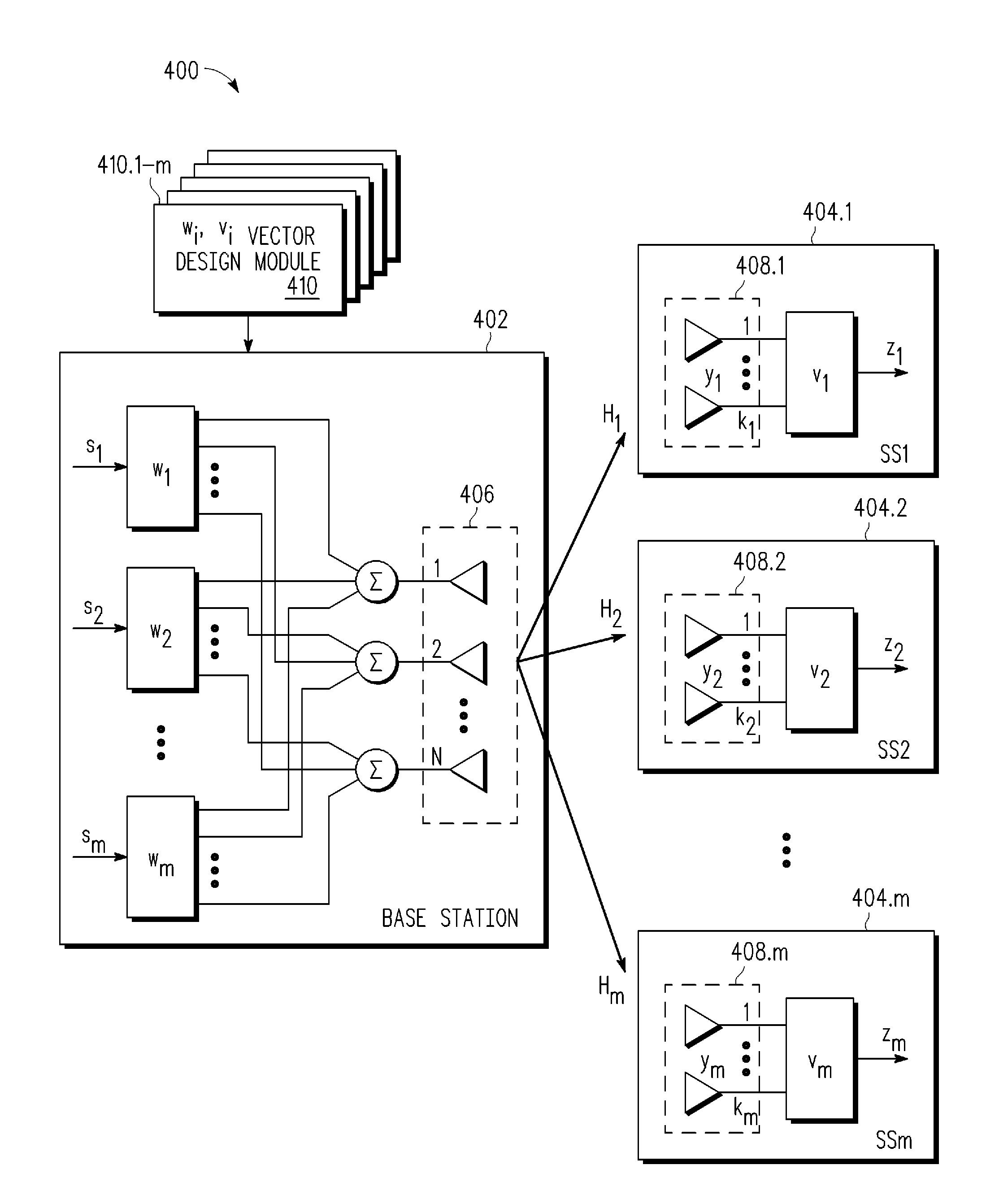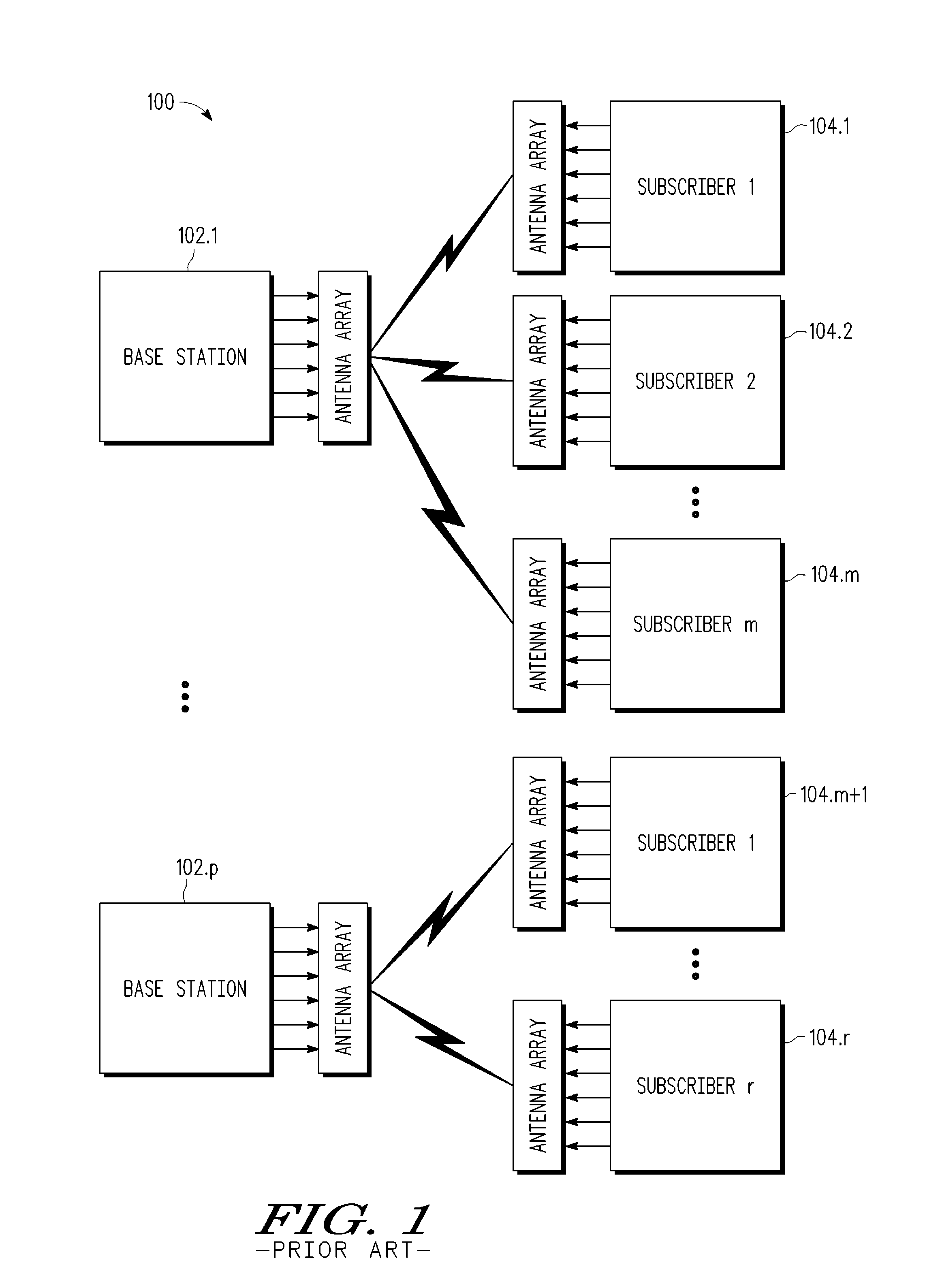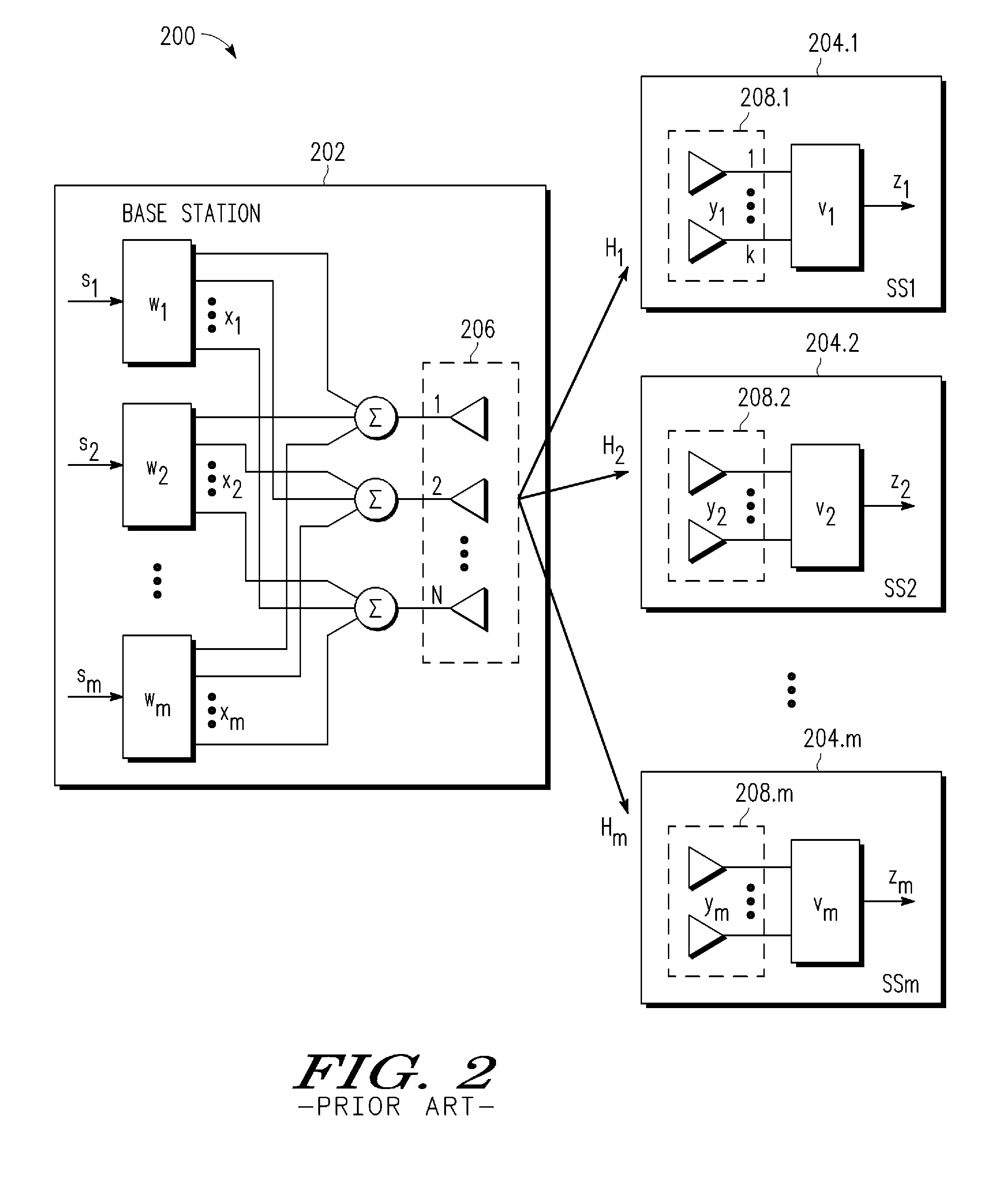Methods for opportunistic multi-user beamforming in collaborative MIMO-SDMA
a beamforming and multi-user technology, applied in the field of information processing, can solve problems such as the inability to improve the efficiency of spectrum usage, the limited capacity of electromagnetic frequency spectrum, and the inability to achieve multi-user beamforming
- Summary
- Abstract
- Description
- Claims
- Application Information
AI Technical Summary
Problems solved by technology
Method used
Image
Examples
Embodiment Construction
[0025]A wireless MIMO-SDMA methodology and system are described for jointly designing beamforming weighting and combining vectors that exploit instantaneous channel information in an opportunistic manner to produce signals having a higher per user average signal-to-noise ratio (SNR) or signal-to-interference-plus-noise ratio (SINR). Using the assembled MIMO channel information (e.g., channel matrix Hi) for all the subscriber stations, the base station uses a collaborative framework to design the subscriber station receive combining vector vi and the base station transmit weighting vector wi so as to exploit the instantaneous channel conditions to improve per user average SNR performance. In at least one embodiment, the base station jointly designs the beamforming vectors (v1, . . . , vm; w1, . . . , wm) for the “best” subscriber station first (e.g., the subscriber station with the channel matrix having the largest left singular value), and then for the next “best” subscriber station...
PUM
 Login to View More
Login to View More Abstract
Description
Claims
Application Information
 Login to View More
Login to View More - R&D
- Intellectual Property
- Life Sciences
- Materials
- Tech Scout
- Unparalleled Data Quality
- Higher Quality Content
- 60% Fewer Hallucinations
Browse by: Latest US Patents, China's latest patents, Technical Efficacy Thesaurus, Application Domain, Technology Topic, Popular Technical Reports.
© 2025 PatSnap. All rights reserved.Legal|Privacy policy|Modern Slavery Act Transparency Statement|Sitemap|About US| Contact US: help@patsnap.com



